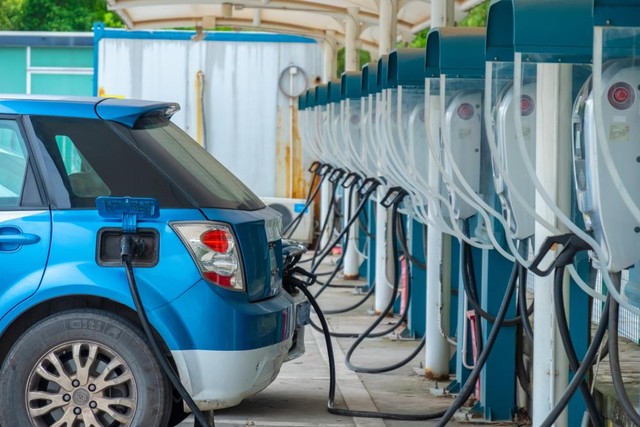Unsustainable boom, electric cars are rushing into a ‘dead end’?
Battery manufacturers are facing a severe shortage of lithium. That shows the need to challenge China’s preponderance of raw material supply chains.
Stuart Crow, president of lithium development company Lake Resources, said Western companies and governments have failed to build proper supply chains for lithium. The sudden boom in electric vehicle production becomes unsustainable.
“There simply won’t be enough lithium on the planet’s surface, whether extender or distributor, just no more lithium to mine,” he said.
Lithium-ion batteries play an important role for governments who hope to decarbonize their economies. The West is also working to loosen China’s hold on the country’s supply chain and manufacturing capacity in particular. The disruption from the war in Ukraine and the sanctions imposed on Russia also underscore the importance of supply security.

“Currently, China basically owns 70-80% of the entire supply chain for electric vehicles and lithium-ion batteries, and that’s energy storage,” Crow said. adopt a strategy of trying to support and secure the supply chain”.
Daniel Morgan, a mining analyst at investment bank Barrenjoey, said: “The goals of electric vehicle production by automakers or by governments are unattainable. They have a love of toss. They set big goals, but when the idea is put into practice, it just doesn’t happen.”
Lake Resources, listed on the Australian Stock Exchange, is developing a lithium production plant in Argentina. There, the company will use technology developed by Bill Gates-backed US company Lilac Solutions to extract lithium directly from brine, rather than through the common evaporation method.
The company plans to produce 50,000 tons of lithium carbonate per year by 2025 and is focused on building a supply chain beyond China.
Although established in 2015, Lake Resources’ plant in Argentina itself has yet to produce a ton of lithium. Crow says that’s a consequence of the time it takes to develop lithium projects, something automakers don’t take into account when setting electric vehicle production goals.
While the US wants half of car sales to be electric by 2030, the EU has proposed banning the sale of internal combustion engine cars entirely by 2035. Major brands include Volkswagen, Ford, Stellantis, General Motors and Toyota have both announced ambitious goals to increase production of electric vehicles and phase out petrol cars.
The International Energy Agency (IEA) estimates global electric vehicle sales must reach 47 million per year by 2030 to ensure traffic emissions are in line with the “sustainable development scenario”. This would keep global warming “well below” 2 degrees Celsius, in line with the Paris Climate Agreement.
Mining group Rio Tinto predicts demand for lithium will grow by 25-35% annually over the next decade.
Barrenjoey’s Daniel Morgan says 28 million electric vehicle sales by 2030 is a more realistic forecast. But even that is not possible with the currently announced lithium projects. Indeed, that goal would require a sixfold increase in lithium production between now and 2030.
“It’s eight years away from 2030. We need to start hearing about new projects now. It’s a great time to be an operator,” said Morgan.
Source: FT
at Blogtuan.info – Source: genk.vn – Read the original article here


